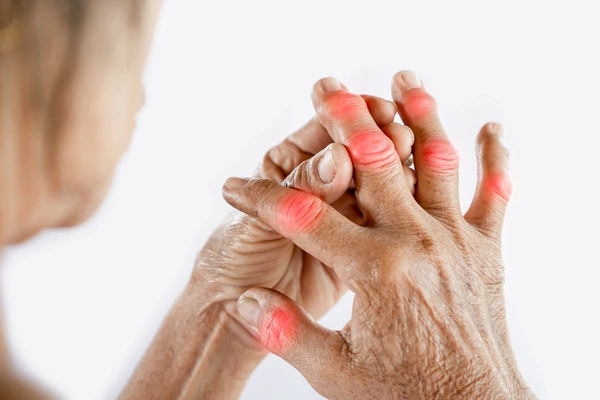- Female
- 60 Years
- 14/08/2025
My mom is scheduled for knee replacement surgery on Feb 15 at AIIMS and is currently on Folitrax 10mg weekly. Her recent blood report showed platelets around 105,000 could the Folitrax be causing this drop since she took it before the test? Her current meds are Thyronorm 62.5 empty stomach, Pantop D40 morning, Osteofos70 weekly, Uprise 60k weekly, Folitrax weekly, folic acid at night, Shelcal 500mg night, and Etoshine90 night. Should we be concerned about her platelet levels before surgery?
Answered by 1 Apollo Doctors
No increase in platelets is not due to folitrax.. It’s due to viscosity of blood..
Dr. Kamran Suggests...
Consult a Rheumatologist
Answered 14/08/2025
0
0

More Rheumatology Health Queries
View allI've been dealing with severe knee pain for years and it's really affecting my daily life. My knee feels weak and sometimes the pain is unbearable. I've also noticed swelling around my ankle at times. Are there any effective remedies for knee pain that don't involve surgery? Can medications help or are there other treatments available? I'm planning to travel in November-December but worried about managing this pain. What options do I have?
we can then consider surgical options.
Answered by 1 Apollo Doctors
Is there any other way to treat costochondritis besides taking anti-inflammatory tablets? I've been dealing with this for almost two months, and it's really affecting me mentally with all the anxiety and fear it brings.
Consider exploring alternative treatments for costochondritis, such as physical therapy, heat or cold compresses, deep breathing exercises, yoga, or stress-reducing techniques like meditation or cognitive-behavioral therapy, under the guidance of a healthcare professional, to help manage symptoms and alleviate psychological distress.
Answered by 1 Apollo Doctors
I'm a bit worried about this issue with lax ligamentsis it something that lasts a lifetime? And is there any way to cure it? If it can be healed, how much time does that usually take?
use medicine
Answered by 1 Apollo Doctors
Disclaimer: Answers on Apollo 247 are not intended to replace your doctor advice. Always seek help of a professional doctor in case of an medical emergency or ailment.





